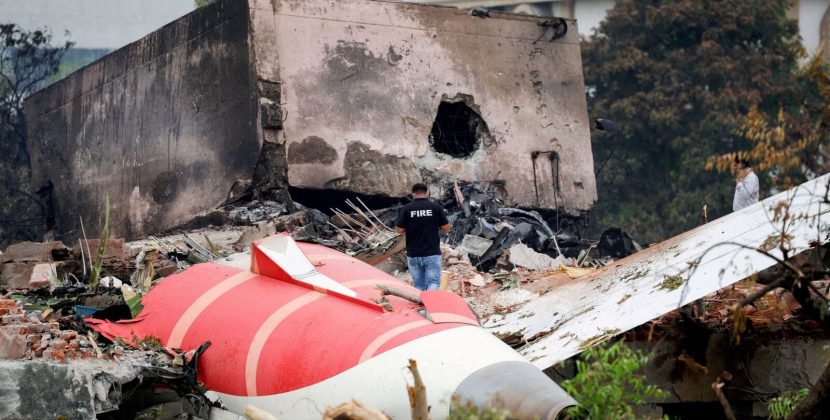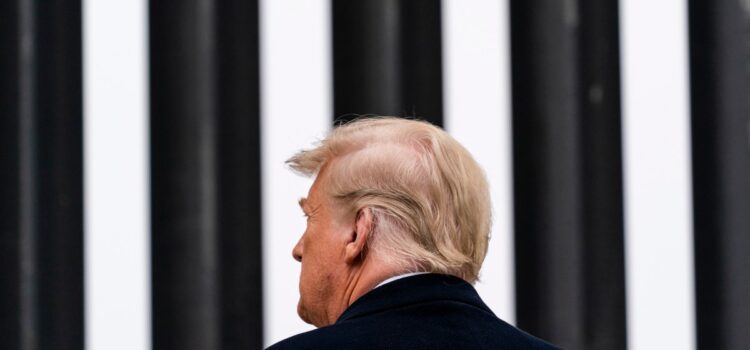CHICAGO — Incoming President Donald Trump’s “border czar” Tom Homan is hesitating to carry out a leaked plan to flood Chicago with immigration officers during the president-elect’s first week in office, he said in an interview with the Washington Post Saturday.
Homan, the former acting director of Immigration and Customs Enforcement, told the Washington Post he “hasn’t made a decision yet” regarding a plan first reported by the Wall Street Journal and New York Times to send 150-200 ICE officers to the city as soon as Tuesday.
“We’re looking at this leak and will make a decision based on this leak,” Homan told the Washington Post. “It’s unfortunate because anyone leaking law enforcement operations puts officers at greater risk.”
He went on to say he didn’t know “why Chicago was mentioned specifically” and explained the incoming administration’s intended scope was far broader than just Chicago.
The “Operation Safeguard” plan was slated to launch the day after Trump’s inauguration and run until the following Monday, according to two unnamed current federal agents and a former official who spoke with the New York Times. Now, Homan wants to make it clear that ICE’s commitment to specifically target undocumented immigrants with criminal records or who have evaded deportation in the past will be a “nationwide thing,” he said to the Washington Post.
“ICE will start arresting public safety threats and national security threats on day one,” he said. “We’ll be arresting people across the country, uninhibited by prior administration’s guidelines. … We’re not sweeping neighborhoods. We have a targeted enforcement plan.”
The Trump administration is gearing up for what it says will be the largest mass-deportation operation in United States history. An executive order declaring a state of emergency on the southern border will most likely be signed on Monday, Trump’s first day in office, according to Politico.
Previous announcements of big raids by the Trump administration created panic, but did not lead to mass deportations. In 2019, 2,000 migrants were targeted in raids across the country, but only 35 were actually arrested, the Times reported.
The Congressional Hispanic Caucus released a statement Sunday denouncing the Trump administration’s “unconstitutional” deportation aspirations, saying ICE raids violate a person’s Fourth Amendment rights against unlawful searches and seizures.
“We recognize the profound anxiety, fear and apprehension these actions bring to our communities,” the caucus said. “The CHC is committed to serving as a resource and advocate for all families impacted by the unconstitutional actions of the incoming administration, and we will continue to fight for the rights, safety and the dignity of all communities.”
Meanwhile, Homan condemned the people who leaked the operation and declined to comment on whether or not there was a specific plan to send ICE agents to Chicago, opting to defer to regional ICE officials.
Just last month, Homan announced mass deportations efforts would “start right here in Chicago” at an event on the Northwest Side, prompting widespread backlash across the city.
Mayor Brandon Johnson was absent from a Saturday morning press conference addressing the Trump administration’s targeting of Chicago, but touted his administration’s dedication to progressive values in an X post on Sunday.
“Chicago stands strong: regardless of the circumstances, our commitment to protecting and supporting this city remains unwavering. We will continue to fight for the justice and safety of all who call this place home,” he said.
The back-and-forth frenzy comes after Chicago stood by its Sanctuary City status in a 39-11 City Council vote against changes on Wednesday, meaning local law enforcement still cannot assist ICE officials with deportations or raids. That doesn’t mean ICE agents can’t conduct operations within Chicago city limits, though.
Prior to Homan’s confirmation that plans to raid Chicago weren’t set in stone yet, Ald. Andre Vasquez (40th) told Block Club he and other city officials were privately doubting the Trump administration’s ability to mobilize ICE so soon after taking office.
”I don’t believe [the Trump administration] really has the resources to really amp up the way they’re starting to, but they want people to believe a big change is happening,” Vasquez explained. “It is really all about the communication and messaging.”
Anyone has the right to refuse an ICE agent entry, even undocumented immigrants. Read more about what immigrant communities should know about their rights here.
Listen to the Block Club Chicago podcast:












Comments